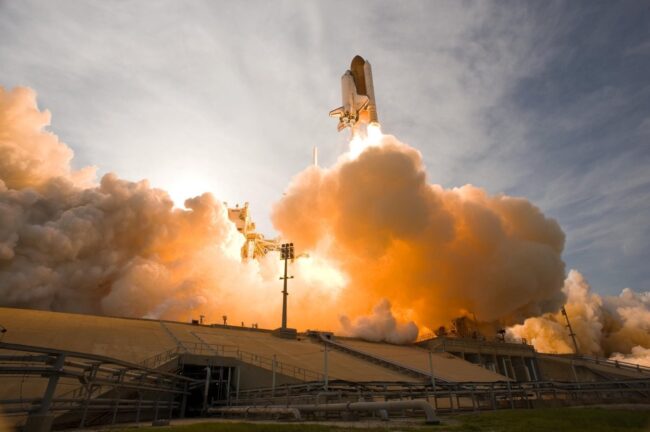Aeronautical engineering graduates are highly valued and in great demand. The Aeronautical Engineering masters is ideal for graduates seeking employment in the aeronautical sector and for practising aerospace engineers who want to extend and update their skills.
Progression to management is key to the careers of postgraduate engineers, so as part of the aeronautical engineering programme you will develop relevant managerial skills, as well as an awareness of the wider issues that affect the aeronautical industry.
The MSc Aeronautical Engineering meets the academic requirements for Chartered Engineer (CEng) status with the Institution of Mechanical Engineering (IMechE) and the Royal Aeronautical Society (RAeS).
What you will study
Throughout the MSc Aeronautical Engineering programme, you will study a mix of core and optional modules and undertake a supervised 60 credit dissertation. Please note: If you’re an aeronautical engineering graduate from the University of South Wales intending to progress into postgraduate study, you will be required to complete the optional modules in advanced materials and manufacture, advanced computational fluid dynamics, fatigue and fracture and further FEA.
- Advanced Materials and Manufacture
This module will enable the student to gain knowledge and analytical skills on a range of modern engineering materials, subsequently develop a critical awareness on the selection criteria for aeronautical and mechanical engineering applications. You will also develop knowledge on a range of manufacturing processes, methods and techniques. - Fatigue and Fracture
The aim of this module is to enable students to carry out appropriate analysis to apply to designs where failure due to fatigue may be an issue. The analysis of cracks in structures allows the students to make informed decisions as to appropriate actions that can be taken to prevent unwanted catastrophic failure. - Further Finite Element Analysis
This will enable the student to assess the suitability of finite element analysis to solve a range of engineering analysis with an understanding of the limitations of the analysis. You will learn how to carry out appropriate finite element analysis using a range of modelling techniques and to critically analyse the results obtained from finite element software. - Further Computational Fluid Dynamics
This will provide students with a practical understanding of the numerical methods which underlie computational fluid dynamics analysis. - Research Methods for Engineers
This will provide the students with the ability to determine the most appropriate methods to collect, analyse and interpret information relevant to an area of engineering research. You will develop the ability to critically reflect on your own and others’ work. - Aeroelasticity
This module provides the student with an integrated understanding of the interaction among aerodynamic, inertia and elastic forces and how this interaction affects the design of an aircraft. You will learn how to predict, analyse and assess aeroelastic phenomena on an aircraft. - Professional Engineering Management
This module will enable learners to develop knowledge of strategic leadership within the context of an engineering business. Learners will develop the skills to critically analyse leadership and management theories and how these shape the strategic direction and effectiveness of an organisation. The learners will develop understanding of application of this knowledge to individual leadership skills in relation to professional engineering, using the Engineering Council UK-Spec document as a framework for good practice. - Advanced Propulsion
This will provide the skills required to perform detail analysis of components of aircraft engines. You will develop a working knowledge and critical awareness of aircraft engine performance, analysing techniques, component, system design and associated technologies - Advanced Aircraft Design
You will develop an integrated understanding of the taught aeronautical engineering postgraduate modules, through a design and synthesis perspective. This module will provide you with the tools and methods to conceptually create, simulate and optimise an aircraft design. - Dissertation
The dissertation is the final component and the culmination of the MSc programme. The knowledge and skills of the taught elements of the MSc programe provide the foundation for this comprehensive research project along with additional guidance on research methodology. The dissertation represents a substantial piece of work, which brings the taught elements of the programme into context within a research or industrial based project work. The dissertation allows the students to undertake a substantial piece of investigative research work on an appropriate engineering topic and further develop the students skills in research, critical analysis and development of solutions using appropriate techniques.
Teaching
The MSc Aeronautical Engineering is delivered evenly throughout the year.
Modules involve lectures, tutorials and practical laboratory work, with continually assessed coursework or a mixture of coursework and exams.
Assessment
You will be continually assessed through a mixture of coursework and exams. The dissertation allows you to research a specific aeronautical engineering topic, to illustrate your depth of knowledge, critical awareness and problem-solving skills.
The dissertation has three elements of assessment: a thesis, a poster presentation, and a viva voce examination.
Zobacz więcej na stronie uniwersytetu >>
Wiza studencka do Wielkiej Brytanii
Aby studiować w Wielkiej Brytanii potrzebujesz wizy studenckiej. Aby złożyć wniosek o taką wizę studencką musisz zdjać certyfikat językowy na poziomie B2.
Uważaj! Do celów wizowych musisz wybrać wyłącznie egzamin w wesji Secure English Language Test (SELT) UKVI .
Co to jest test SELT UK VI registration? Przeczytaj więcej o testach SELT UKVI >>




















